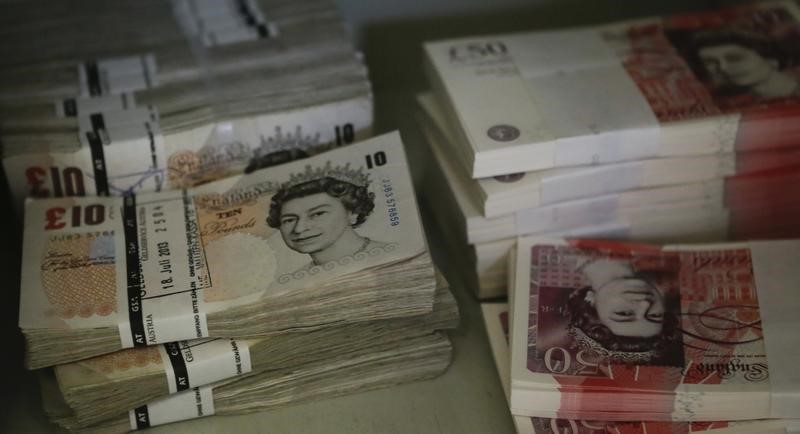LONDON (Reuters) - China allocates an estimated 10 percent of its $3.5 trillion foreign exchange reserves to sterling, double the holdings of other emerging market central banks in the British currency, an analysis by Morgan Stanley (N:MS) shows.
Analysts Evan Brown and Charles Rubenfeld said China may choose to keep more reserves denominated in sterling in the coming years, perhaps at the expense of the dollar, as it seeks to beef up ties with London, the world's biggest centre for currency trade.
"There is no clear reason for this GBP overweight, though it may be because of financial linkages due to growing the China-UK relationship and London being a global financial centre," they said in the note.
On Tuesday, during a state visit by Chinese President Xi Jinping, the Bank of England and the People's Bank of China renewed an existing sterling/renminbi currency swap line for a further three years and said its maximum value would be increased to 35 billion yuan.
Britain was the top destination for Chinese money in 2014, with $5.1 billion in investment, according to law firm Baker & McKenzie, and during Xi's visit deals worth around $62 billion were clinched.
Late last month, China started reporting data on its official foreign exchange reserves to the International Monetary Fund in an effort to provide more transparency in its push to have the yuan recognised as a reserve currency.
A decision on whether to include the yuan in the IMF's Special Drawing Rights currency basket is likely in November.

Data from the IMF on Sept. 30 showed total foreign-exchange reserves globally were $11.5 trillion in the second quarter, up from $11.4 trillion in the previous quarter. The dollar's share fell in the second quarter to 63.7 percent while the euro's share was steady at 20.7 percent.